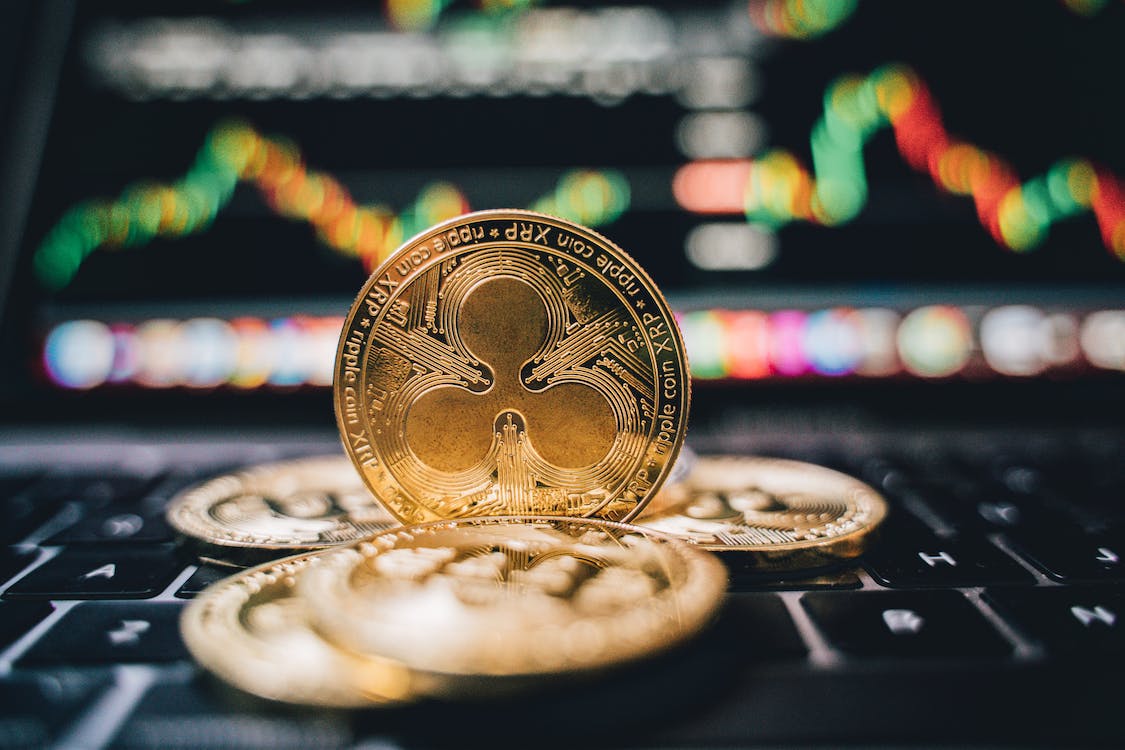Choosing the best cryptocurrency to invest in can be a challenging decision, as the market is highly dynamic and there are numerous options available. Here are some key factors to consider when selecting a cryptocurrency:
- Market Capitalization and Liquidity: Market capitalization refers to the total value of a cryptocurrency’s outstanding coins or tokens. Higher market capitalization generally indicates a more established and stable cryptocurrency with better liquidity, meaning it’s easier to buy and sell in the market. Cryptocurrencies with larger market capitalization and higher trading volumes may also be less prone to price manipulation.
- Technology and Use Case: The technology underlying a cryptocurrency, such as its blockchain, is a critical factor to consider. Look for cryptocurrencies that have a solid technological foundation, with features such as scalability, security, and decentralization. Additionally, consider the use case and potential real-world applications of the cryptocurrency. Cryptocurrencies with a clear use case and utility beyond speculative investment may have better long-term prospects.
- Development Team and Community: The development team behind a cryptocurrency plays a crucial role in its success. Look for cryptocurrencies with experienced and reputable development teams that have a track record of delivering on their promises. Additionally, a strong and engaged community can be indicative of a cryptocurrency’s potential for growth and adoption.
- Historical Price Performance and Market Trends: Analyzing a cryptocurrency’s historical price performance and market trends can provide insights into its potential for future growth. Consider factors such as price volatility, historical price trends, and overall market sentiment towards the cryptocurrency.
- Risk-Reward Profile: Every investment carries risks, and cryptocurrencies are no exception. Consider the risk-reward profile of the cryptocurrency you are interested in. Higher potential returns may come with higher risks, so assess your risk tolerance and investment goals accordingly.
- Regulatory Environment: The regulatory landscape around cryptocurrencies varies across different countries and jurisdictions. Consider the regulatory environment of the cryptocurrency you are interested in and how it may impact its adoption, use, and value in the future. Stay updated with any regulatory developments that may affect the cryptocurrency market.
- Market Competition: Consider the competition within the cryptocurrency market. Some cryptocurrencies may face stiff competition from other established cryptocurrencies or new emerging projects. Evaluate the competitive landscape and the unique value proposition of the cryptocurrency you are considering.
- Fundamental Analysis: Conducting fundamental analysis, similar to traditional financial markets, can help you assess the financial health, governance, and long-term prospects of a cryptocurrency. Consider factors such as the team’s credentials, funding mechanisms, partnerships, and roadmap.
- Diversification: It’s important to diversify your investments to spread risk. Avoid putting all your investment into a single cryptocurrency and consider diversifying across different cryptocurrencies to mitigate risks.
It’s important to note that investing in cryptocurrencies involves inherent risks, and it’s essential to do thorough research, seek professional advice, and only invest what you can afford to lose. The cryptocurrency market is highly speculative and can be volatile, so careful consideration of the factors mentioned above can help you make informed decisions when choosing the best cryptocurrency to invest in.
What are the top crypto currencies
As of my knowledge, the cryptocurrency market is highly dynamic and the rankings of cryptocurrencies can change rapidly. However, here are some of the top cryptocurrencies based on market capitalization and popularity:
- Bitcoin (BTC): Bitcoin is the first and most well-known cryptocurrency, often referred to as the “digital gold.” It has the largest market capitalization and remains the dominant cryptocurrency in terms of adoption and acceptance worldwide.
- Ethereum (ETH): Ethereum is a decentralized platform that enables the creation of smart contracts and decentralized applications (dApps). It has its cryptocurrency called Ether (ETH) and is known for its innovative use cases beyond just digital currency, such as decentralized finance (DeFi) and non-fungible tokens (NFTs).
- Binance Coin (BNB): Binance Coin is the native cryptocurrency of the Binance Exchange, which is one of the largest cryptocurrency exchanges in the world. BNB is primarily used as a utility token for discounted trading fees, but it also has other use cases within the Binance ecosystem.
- Cardano (ADA): Cardano is a blockchain platform that aims to provide a secure and scalable environment for decentralized applications. It is known for its academic approach to development and its focus on peer-reviewed research.
- Solana (SOL): Solana is a high-performance blockchain platform that aims to provide fast and scalable solutions for decentralized applications. It has gained popularity for its ability to handle a large number of transactions per second (TPS) and its focus on the decentralized finance (DeFi) sector.
- XRP (XRP): XRP is the cryptocurrency associated with the Ripple payment protocol, which aims to facilitate fast and low-cost cross-border transactions. It has gained adoption among financial institutions and banks for its potential to revolutionize traditional payment systems.
- Polkadot (DOT): Polkadot is a multichain network that aims to connect multiple blockchains, enabling them to interoperate and share information. It focuses on providing scalability, interoperability, and security for decentralized applications.
- Dogecoin (DOGE): Dogecoin is a cryptocurrency that started as a meme but has gained a significant following due to its community-driven nature and celebrity endorsements. It has a unique and lighthearted approach compared to other cryptocurrencies.
It’s important to note that the rankings of cryptocurrencies can change rapidly due to market fluctuations and evolving trends. It’s crucial to conduct your own research, understand the risks involved, and make informed investment decisions based on your individual financial situation and investment goals.
What things make an crypto currency good

There are several key factors that can make a cryptocurrency stand out as “good” or have potential for success. These factors may vary depending on individual preferences and investment strategies, but generally include:
- Technology and Innovation: The underlying technology of a cryptocurrency is a critical factor. It should be innovative, scalable, and offer unique features or use cases that differentiate it from other cryptocurrencies. For example, cryptocurrencies that provide faster transaction times, lower fees, enhanced privacy, or improved security may be considered favorable.
- Development Team and Community: The development team behind a cryptocurrency plays a crucial role in its success. A strong and experienced team with a clear roadmap, regular updates, and a supportive community can contribute to the credibility and adoption of a cryptocurrency.
- Adoption and Real-World Use: The level of adoption and real-world use cases of a cryptocurrency is an important indicator of its potential success. Cryptocurrencies that are accepted by a wide range of merchants, used for everyday transactions, or integrated into existing financial systems are generally considered more valuable and promising.
- Market Capitalization and Liquidity: Market capitalization refers to the total value of a cryptocurrency in the market. Cryptocurrencies with higher market capitalization and liquidity tend to be more stable and attractive to investors. It’s important to consider the trading volume and liquidity of a cryptocurrency, as it can impact its ease of buying, selling, and exchanging.
- Security and Privacy: Cryptocurrencies should prioritize security and privacy to protect users’ funds and personal information. Strong encryption, robust security measures, and privacy features can enhance the trust and reliability of a cryptocurrency.
- Community and Ecosystem: The size, activity, and engagement of the community surrounding a cryptocurrency can greatly impact its success. A supportive and active community can contribute to the development, adoption, and promotion of a cryptocurrency.
- Market Demand and Sentiment: The demand for a cryptocurrency in the market and overall market sentiment can influence its value and potential for growth. Positive market sentiment, favorable news coverage, and increasing demand from investors and users can indicate a good investment opportunity.
- Regulatory Environment: The regulatory environment and legal framework surrounding cryptocurrencies can impact their adoption and value. Cryptocurrencies that comply with relevant regulations, have clear legal status, and are widely accepted by regulatory bodies may be considered more favorable.
It’s important to note that investing in cryptocurrencies involves risks, including volatility, regulatory changes, and potential loss of funds. It’s essential to conduct thorough research, understand the risks involved, and seek professional advice before making any investment decisions.
How to Choose Best Crypto Currency
Choosing the best cryptocurrency to invest in can be a challenging decision, as the market is highly dynamic and there are numerous options available.
What are the top crypto currencies
As of my knowledge Bitcoin (BTC), Ethereum (ETH) and Binance Coin (BNB) are the top currencies.








